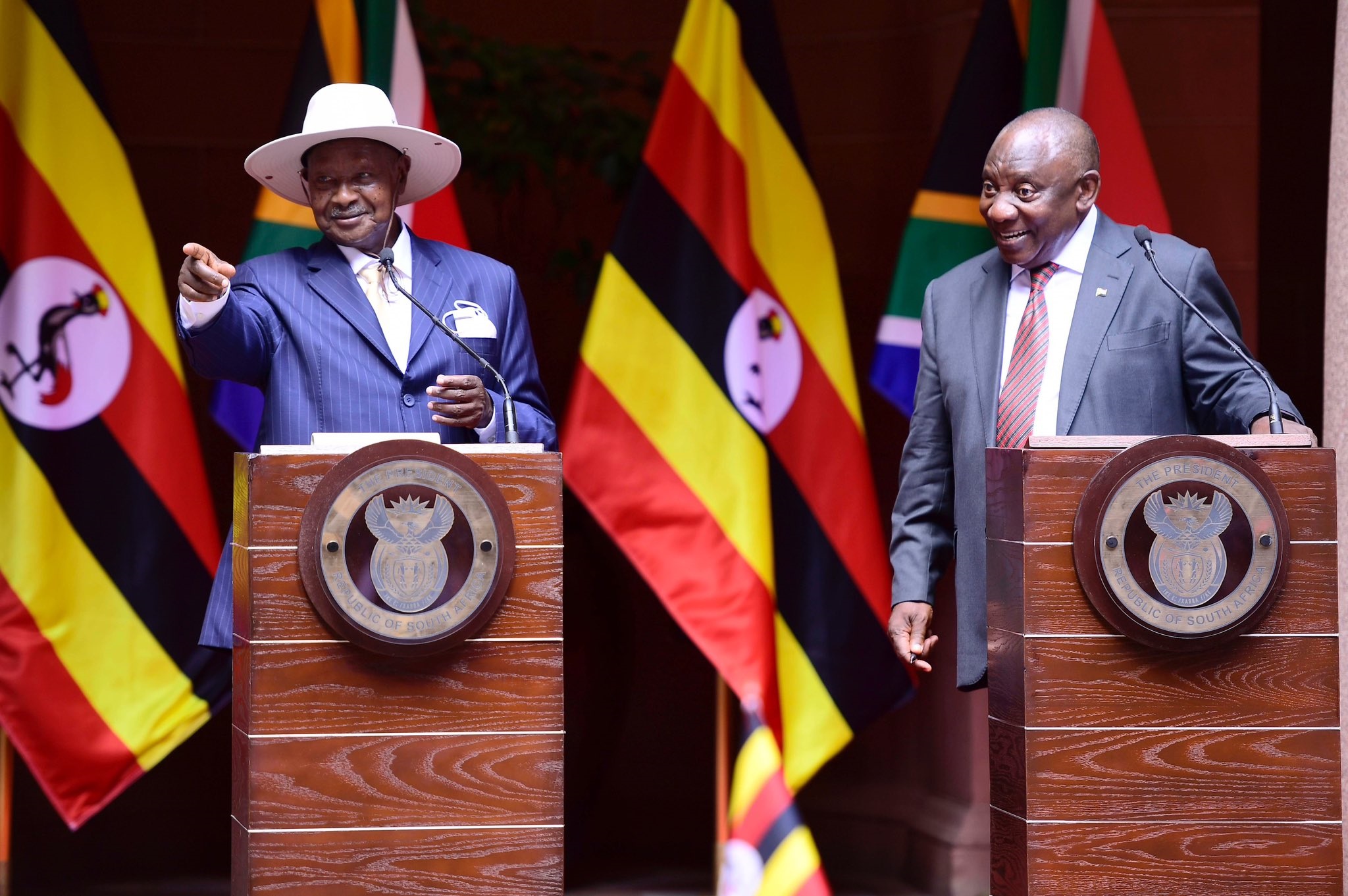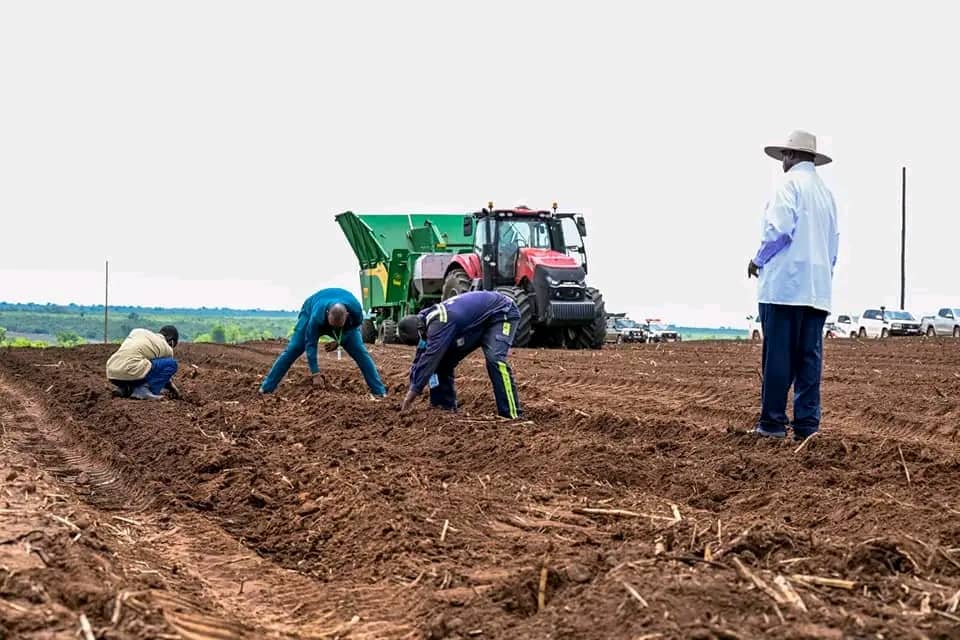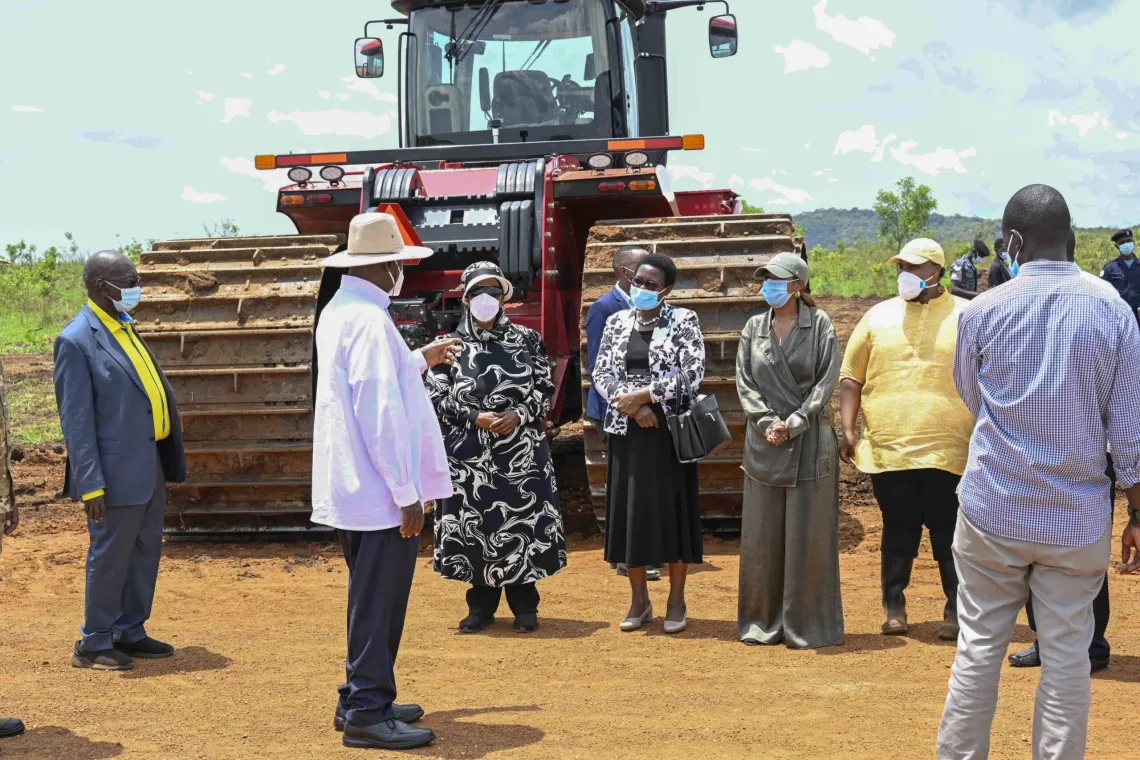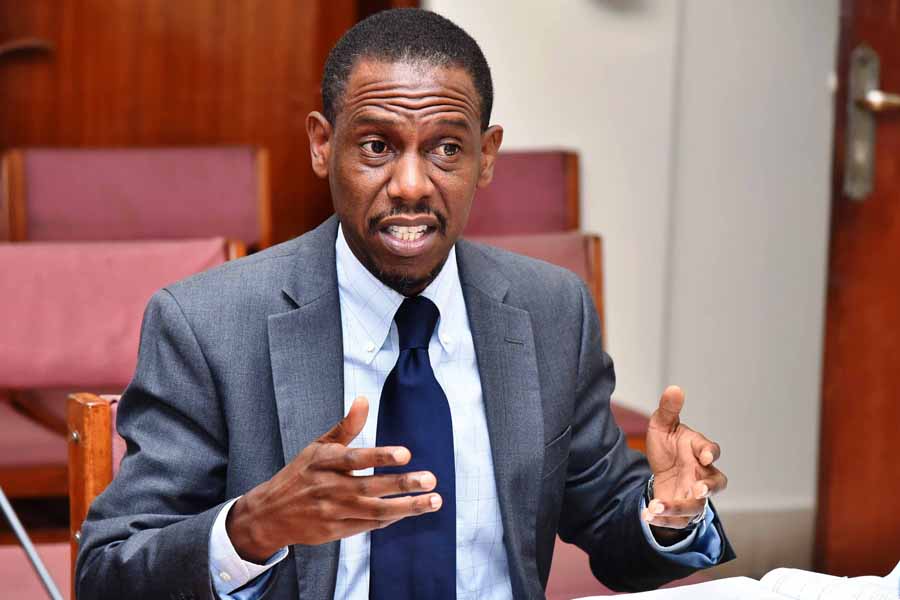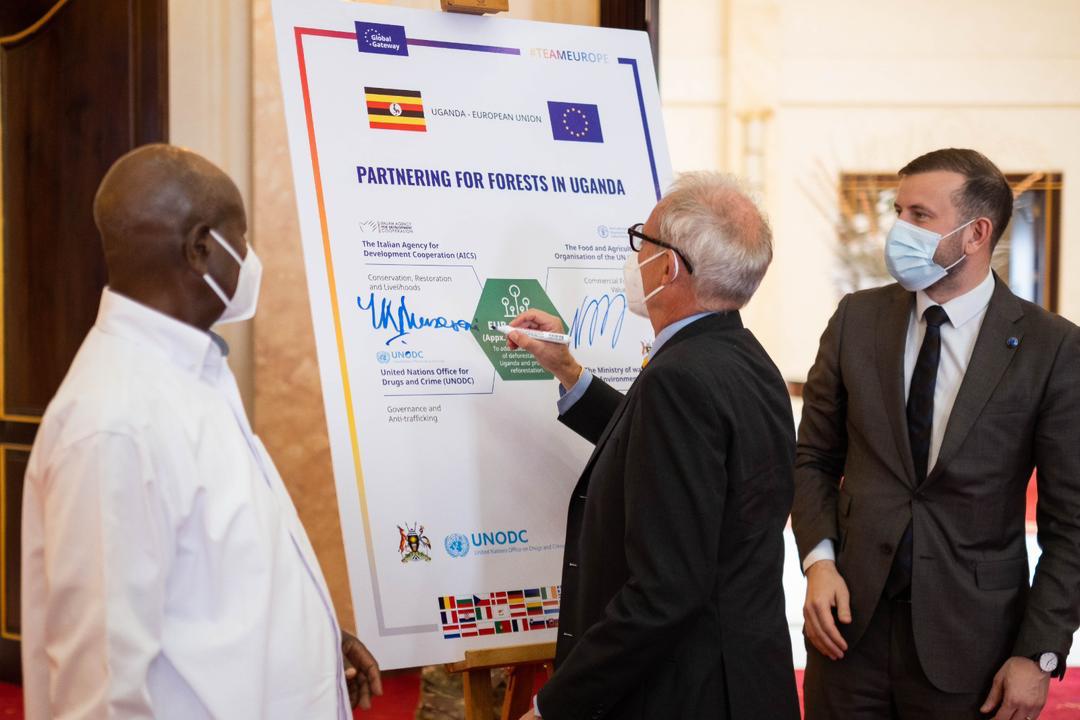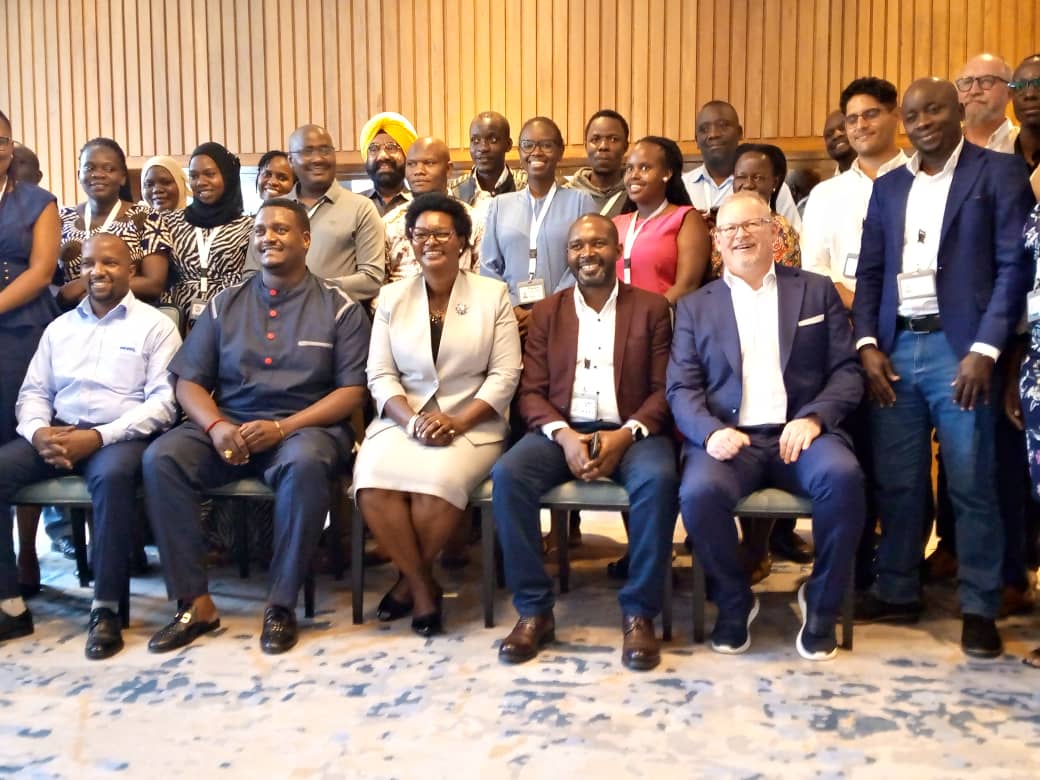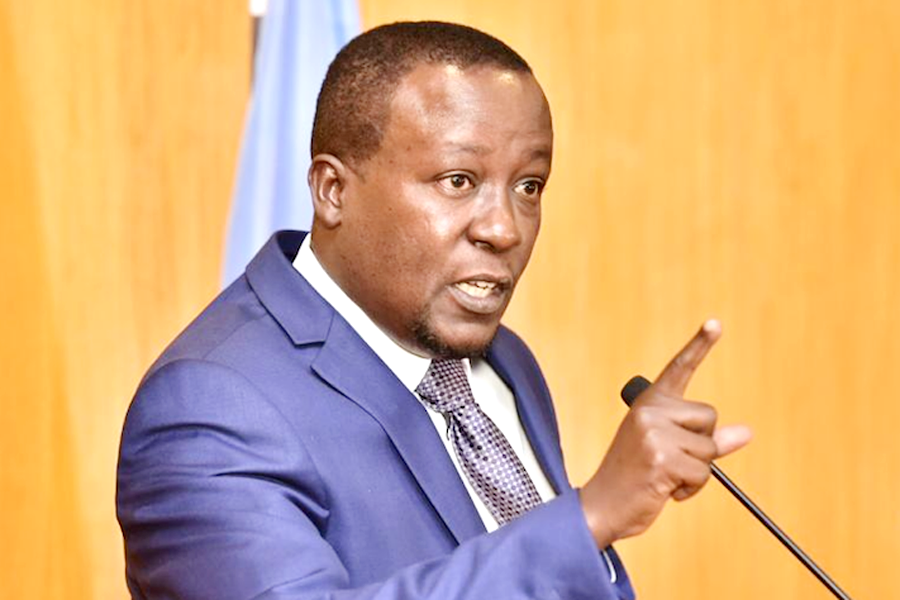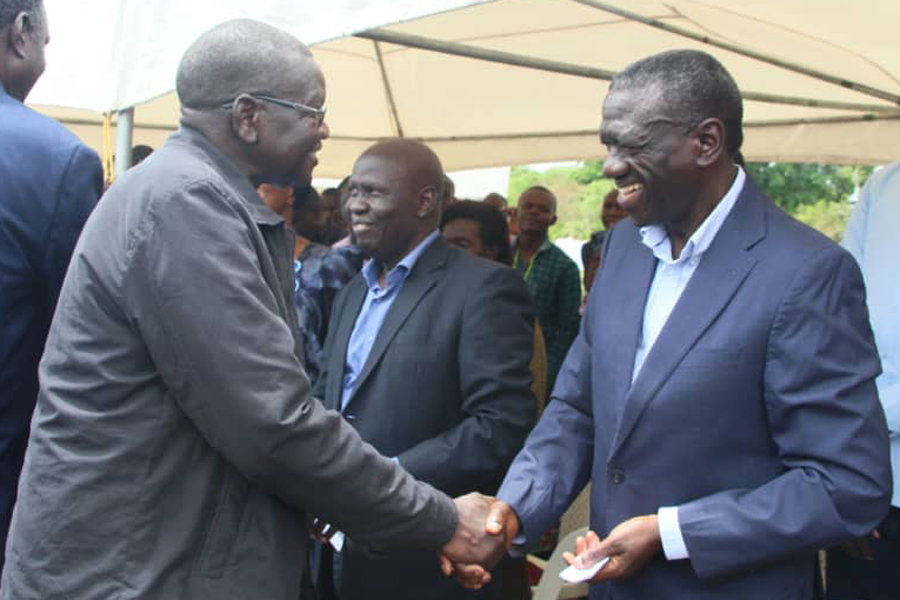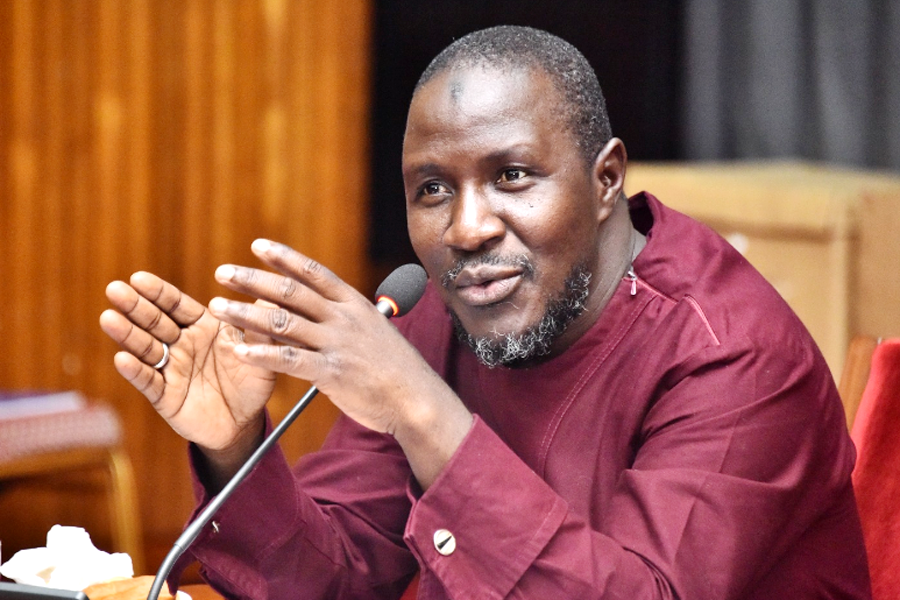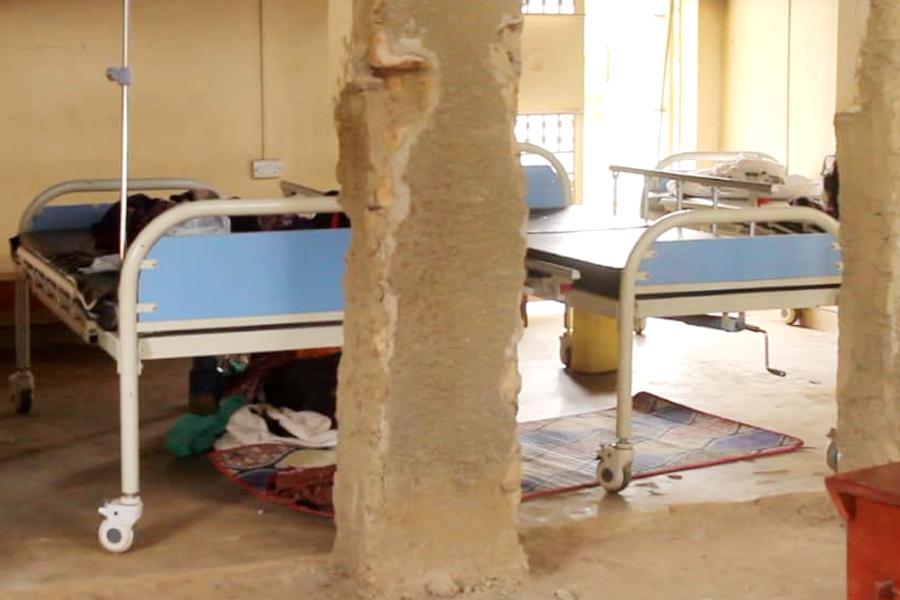Illegal Wildlife trade, trafficking a threat to security- Museveni
President Museveni has said that illegal wildlife trade and trafficking are not only a threat to conservation but also to security and economies of the various nations.
Museveni made the remarks on Thursday while addressing a conference on illegal wildlife trade in London, United Kingdom hosted by UK Prime Minister Thereza May.
Keep Reading
- > Museveni, Ramaphosa set to meet for Regional Security talks
- > Museveni warns against hindering Atiak Sugar Factory project
- > Museveni hails Atiak Sugar factory for benefitting Acholi, neighbouring areas
- > Museveni directs the Attorney General to draft legislation prohibiting National ID as loan collateral
The Ugandan president explained to the various leaders that government ought to work together to combat illegal wildlife trade and trafficking or else they would feel its consequences.
“…illegal wildlife trade and trafficking does not only threaten conservation but the security and economies of our nations. Proceeds from this illegal trade have been linked to financing of terrorism and civil wars and, therefore, these criminal gangs require cooperation of governments to be defeated,”Museveni said.
“I call upon Governments and partners gathered here to strengthen collaboration and cooperation especially in sharing intelligence, capacity development-equipment, training and financing, strengthening laws and cross border law enforcement, reducing demand for illegal wildlife products and strengthening legal mechanisms for commercialization of wildlife to support sustainable development.”
Museveni told the gathering that Uganda remains committed to stop the menace of the illegal wildlife trade at national, regional and global scale through a number of ‘robust’ policies and programs aimed at protecting wildlife.
He cited a the establishment of the financial intelligence authority to seize assets of traffickers, special wildlife courts, wild crime intelligence and investigation units, deployment of sniffer dogs ,strengthening of the international Airport and legal framework as some of the measures to combat illegal wildlife trade and trafficking undertaken by the Uganda government over the years.
Since the specialized wildlife court was established three years ago, we have improved our conviction rate from less than 50 percent to over 90 percent for all wildlife crime cases,”Museveni said.
He however told the meeting that issues to do with illegal wildlife trade cannot be divorced from poverty, the structure of the society and community livelihoods.
He cited an example of Uganda, where 20 percent of the money generated from wildlife is shared with the local people neighboring protected areas to help improve their livelihoods as one of ways to encourage locals conserve wildlife.
“We must, therefore, strive to get our people out of poverty through sustainable tourism, investments, trade and industrialization. Moreover, the structure of the society in Africa needs to change as happened in Europe,” he added.
He said conservation goes hand in hand with social-economic transformation of the population adding that a population engaged in disguised unemployment especially in rural areas will automatically clash with wildlife.
“As we are struggling with the duo challenges of conservation and socio-economic transformation, we need to put in place short term measures to stop wildlife against man conflict. The crowded villages like the ones of Bunyaruguru and Kasese, need to be separated from the conservation areas with measures like the electric fences, bees and the growing of tea,”Museveni noted.


